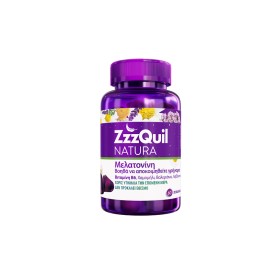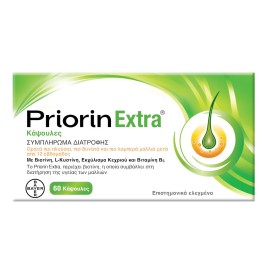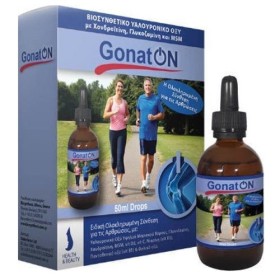The 17 Best Foods for High Blood Pressure
![The 17 Best Foods for High Blood Pressure]()
Following a heart-healthy diet may help lower your blood pressure. Eating foods with nutrients like potassium and magnesium may be especially helpful.
Here are the 17 best foods for high blood pressure.
1. Citrus fruit
Citrus fruits may help lower blood pressure. They’re loaded with vitamins, minerals, and plant compounds, that could help keep your heart healthy by reducing risk factors for heart disease like high blood pressure.
Citrus fruits can include:
grapefruit
oranges
lemons
2. Salmon and other fatty fish
Fatty fish are an excellent source of omega-3 fats, which have significant heart benefits. These fats may help reduce blood pressure levels by lowering inflammation.
3. Leafy greens
Swiss chard and spinach are two examples of leafy greens that may help lower blood pressure.
These leafy greens are a source of the nutrients such as potassium and magnesium, which support optimal blood pressure levels. For instance, 1 cup (175 grams) of cooked Swiss chard delivers 20% and 36% of your daily potassium and magnesium needs, respectively.
4. Nuts and seeds
Nuts and seeds may have a beneficial effect on blood pressure. Examples of nuts and seeds to eat as part of a balanced diet focused on lowering blood pressure include:
pumpkin seeds
flaxseed
chia seed
pistachios
walnuts
almonds
Many nuts and seeds offer a concentrated source of nutrients important for blood pressure control, including fiber and arginine. Arginine is an amino acid needed to produce nitric oxide, an essential compound for blood vessel relaxation and blood pressure reduction .
5. Legumes
Legumes are rich in nutrients that help regulate blood pressure, such as magnesium and potassium. Numerous observational studies suggest legumes may help lower high blood pressure levels.
Legumes include:
lentils
beans
peas
6. Berries
Berries offer impressive health benefits, including the potential to reduce heart disease risk factors like high blood pressure. Berries are a rich source of antioxidants, including anthocyanins, which are pigments that give berries their vibrant color.
Some berries that may reduce blood pressure include:
blueberries
raspberries
chokeberries
strawberries
grapes
cranberries
7. Amaranth
Eating whole grains like amaranth may help lower your blood pressure levels. Studies show that diets rich in whole grains may decrease your likelihood of high blood pressure. You could also try these other whole grains if amaranth isn’t for you:
whole oats
quinoa
brown rice
corn
whole grain bread
whole wheat pasta
8. Olive oil
The oil from the fruit of the olive tree has numerous health benefits, including lowering blood pressure and other risk factors for heart disease.
9. Carrots
Crunchy, sweet, and nutritious carrots are a staple veggie in many people’s diets. Carrots are high in plant-based compounds that may be involved in various health processes, such as managing blood pressure.
10. Eggs
Not only are eggs nutrient-dense but research also suggests that they can be part of a balanced eating plan for blood pressure management.
11. Tomatoes and tomato products
Tomatoes and tomato products are rich in many nutrients, including potassium and the carotenoid pigment lycopene.
12. Broccoli
Broccoli is known for its many beneficial effects on health, including the health of your circulatory system. For example, adding this cruciferous veggie to your diet may be a smart way to reduce blood pressure.
13. Yogurt
Yogurt is a nutrient-dense dairy product packed with minerals that help regulate blood pressure, including potassium and calcium
14. Herbs and spices
Certain herbs and spices contain powerful compounds that may help reduce blood pressure by helping blood vessels relax.
Some herbs and spices that may help lower blood pressure according to results from animal and human research include:
celery seed
cilantro
saffron
lemongrass
black pepper
garlic
onion powder
chili powder
oregano
cumin
red pepper
ginseng
cinnamon
cardamom
basil
ginger
15. Potatoes
Potatoes have several plant-based compounds that could be useful in managing blood pressure levels.
16. Kiwifruit
Kiwifruit is exceptionally high in vitamin C and contains other nutrients involved in blood pressure regulation, including fiber, potassium, and magnesium.
They also provide various plant-based polyphenol and antioxidant compounds. That’s why researchers believe kiwifruit could help lower risk factors for heart disease, including blood pressure.
17. Lean meats
The United States Department of Agriculture defines “lean meat” as any meat with less than 10 grams of fat, 4.5 grams or less of saturated fat, and less than 95 milligrams of cholesterol per 100 grams (about a 3.5-ounce serving).
Lean animal proteins might include any of the following meat or poultry foods that provide high quality protein and nutrients involved in blood pressure management:
skinless chicken breast
beef sirloin
pork tenderloin
93% lean ground turkey
The bottom line
Along with other lifestyle modifications, a healthy diet can significantly lower blood pressure levels and help reduce your heart disease risk.
Source: healthline.com












